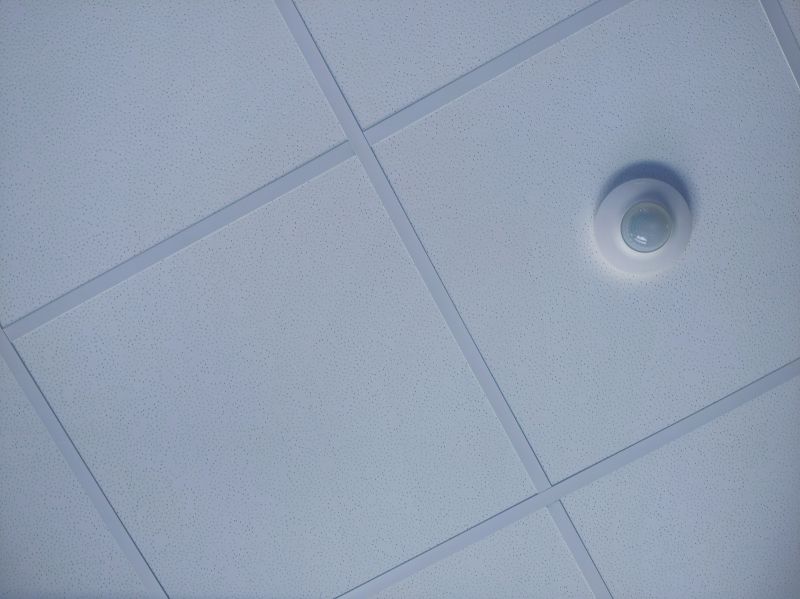Expert Picks For Drop Ceiling Service Equipment And Supplies
A curated selection of reliable tools and materials designed to enhance your drop ceiling service experience.
 Drop ceiling services encompass a wide range of products designed to facilitate the installation, maintenance, and repair of suspended ceilings commonly used in commercial, industrial, and residential spaces. These ceilings consist of a grid framework that supports panels or tiles, providing a clean and functional aesthetic while allowing easy access to plumbing, wiring, and HVAC systems above. Selecting the right products for drop ceiling service is essential for ensuring a safe, durable, and efficient ceiling system. From grid components to lighting fixtures and insulation materials, the variety of available products caters to different needs and preferences.
Drop ceiling services encompass a wide range of products designed to facilitate the installation, maintenance, and repair of suspended ceilings commonly used in commercial, industrial, and residential spaces. These ceilings consist of a grid framework that supports panels or tiles, providing a clean and functional aesthetic while allowing easy access to plumbing, wiring, and HVAC systems above. Selecting the right products for drop ceiling service is essential for ensuring a safe, durable, and efficient ceiling system. From grid components to lighting fixtures and insulation materials, the variety of available products caters to different needs and preferences.
Top Overall Drop Ceiling Components
Drop Ceiling Grid System
A versatile and durable drop ceiling grid system serves as the backbone of suspended ceilings, providing a sturdy framework that supports ceiling tiles or panels. These grid systems are available in various sizes and finishes, designed to accommodate different room dimensions and aesthetic preferences. They are typically made from lightweight metals like steel or aluminum, offering strength without adding excessive weight. Easy to install and adjust, a high-quality grid system ensures a level and stable ceiling surface, facilitating quick maintenance access and modifications. When selecting a grid system, consider compatibility with your chosen tiles, ceiling height, and any specific load requirements for lighting or fixtures.
Types of Products For Drop Ceiling Service
Suspension Grid Components
Includes main runners, cross tees, and wall angles that form the framework for ceiling tiles.
Ceiling Tiles and Panels
Various materials like mineral fiber, fiberglass, metal, or PVC designed to fit into the grid system.
Hangers and Suspension Wires
Support the grid system from the structural ceiling, ensuring stability and proper height.
Lighting Fixtures
Specialized fixtures compatible with suspended ceilings, including recessed lights and LED panels.
Access Doors and Panels
Allow access to utilities above the ceiling for maintenance and inspections.
Insulation Materials
Insulation boards or blankets designed to fit above the ceiling for soundproofing and thermal control.
Acoustic Treatments
Acoustic panels or tiles that improve sound absorption within the room.
Fasteners and Clips
Secure tiles and components to the grid system, ensuring stability and alignment.
Edge Trims and Moldings
Finish the perimeter of the ceiling for a clean, professional look.
Cleaning and Maintenance Tools
Tools like brushes and vacuum attachments for keeping ceiling tiles clean and free of dust.
Popular Choices
Widely used for their sound absorption qualities and ease of installation.
Lightweight and corrosion-resistant, suitable for various environments.
Energy-efficient lighting options that integrate seamlessly into suspended ceilings.
Convenient for maintenance access to plumbing and electrical systems.
Enhance room acoustics by reducing noise levels.
Standard support wires for securing the grid framework.
Water-resistant panels suitable for humid environments.
Integrated lighting options that sit flush within the ceiling grid.
Add aesthetic finishing touches around the perimeter of the ceiling.
Enhance energy efficiency and temperature regulation above the ceiling.
Tools for maintaining clean ceiling tiles and components.
Durable and modern options for industrial or contemporary spaces.
Secure grid components and tiles in place efficiently.
Smart controls for adjusting lighting levels in drop ceilings.
Designed to meet safety standards in commercial environments.
Combine aesthetics with sound absorption for stylish interiors.
When undertaking a drop ceiling project, it's important to consider the compatibility of components, ease of installation, and long-term maintenance. Quality grid systems should offer stability and flexibility, accommodating various panel sizes and configurations. Accessories such as hangers, clips, and suspension wires play a crucial role in securing the framework and ensuring level installation. Additionally, lighting fixtures designed specifically for suspended ceilings can enhance the functionality and ambiance of a space, while insulation options help improve energy efficiency and soundproofing.
Proper selection of products can significantly impact the overall appearance and performance of the ceiling. Whether installing a new ceiling, replacing damaged tiles, or upgrading lighting, understanding the different product types and their features helps in making informed decisions. Maintenance products like cleaning tools and replacement tiles further extend the lifespan of the ceiling system. Overall, a comprehensive approach to choosing drop ceiling products ensures a professional finish and reliable performance over time.
Key Buying Considerations
- Compatibility of grid components with ceiling tiles and panels
- Material durability and resistance to moisture or corrosion
- Ease of installation and availability of installation accessories
- Weight capacity and load requirements for fixtures and lighting
- Acoustic properties for noise control if needed
- Thermal insulation capabilities for energy efficiency
- Aesthetic finish and color options to match interior design
- Maintenance requirements and ease of cleaning
- Compliance with safety standards and building codes
- Availability of replacement parts and accessories
- Cost-effectiveness and long-term durability
- Compatibility with existing ceiling infrastructure
- Flexibility for future modifications or upgrades
- Environmental conditions of the space (humidity, temperature)
- Type of ceiling tiles suitable for the intended use
This page contains affiliate links. We may earn a commission if you make a purchase through these links, at no additional cost to you.
